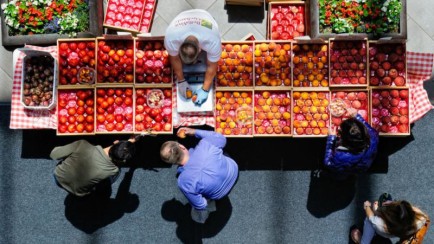
Everything is peachy for Spain’s agricultural sector, but oversupply headaches still persist.
The production of fruit in Spain is legendary. In the southeastern corner of the country, vast amounts of land are given over to farmers producing everything from strawberries to peaches and watermelons…
But such is Spain’s efficiency at producing high quality fruit in volume that the European Union has approved a request by the Spanish government to recall 20,000 tonnes of peaches and nectarines from the market due to excess production.
The recalled fruit will arrive back in Spain over the next few days and turned into pulp for juicing, or delivered straight to the country’s food banks.
This is not the first time that Spain has recalled such vast quantities of fruit, having previously withdrawn 21,000 tonnes from the European market. On that occasion, around 3,000 tonnes made it to food banks. This time, more is expected to be sent to areas of need in the country.
So why is Spain producing more fruit than Europe needs? One of the reasons is that Russia recently imposed a ban on European fruit and vegetables entering the country, meaning that produce from Spain intended for Russia is now being steered towards Europe. Greece, Italy and France find themselves in the same boat, meaning Europe is more than well-stocked for fruit this summer.
However, according to Spain’s agricultural ministry, logistical supply problems have existed for longer than the Russian ban came into place. “The stone fruit sector is experiencing structural imbalances due to excess supply that has been occurring every summer since 2014, even before the closing of the Russian market,” the ministry stated, but added the situation was aggravated in 2017.
The issue is complex, but Spain is apparently close to negotiating an aid package from the EU that will finance this withdrawal of stone fruits from the EU market every year. This means that Spanish farmers can continue to be paid the same amount that they are now used to, but the EU will help foot the bill for distributing the produce more evenly.
A concerted campaign to encourage more Spaniards to consume locally produced stone fruits during the summer will also be rolled out next year, the government said.
 en
en



 Vlaams-Nederlands
Vlaams-Nederlands
0 Comments
Leave a Comment
DISCLAIMER
The opinions and comments expressed by contributors to this Blog are theirs alone and do not necessarily reflect the views of VIVA Homes Under the Sun Ltd, any of its associated companies, or employees; nor is VIVA to be held responsible or accountable for the accuracy of any of the information supplied.
Have you got something to say?